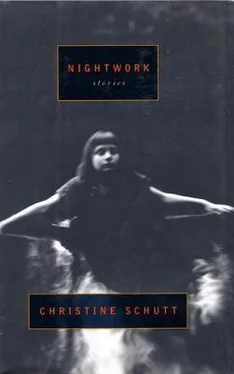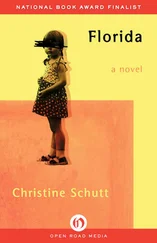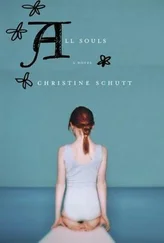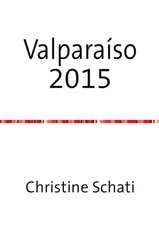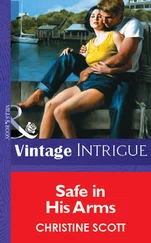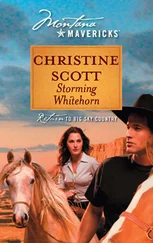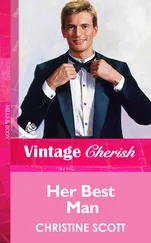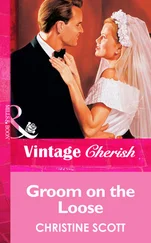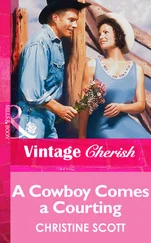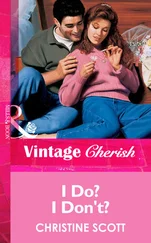Christine Schutt
Nightwork: Stories
She brought him what she had promised, and they did it in his car, on the top floor of the car park, looking down onto the black flat roofs of buildings, and she said, or she thought she said, “I like your skin,” when what she really liked was the color of her father’s skin, the mottled white of his arms and the clay color at the roots of the hairs along his arms. Long hair along his arms it was, hair bleached from sun and water — sun off the lake, and all that time he spent in water, summer to summer abrading the wild dry hair on his head, turning the ends of his hair, which was also red, and deeply so, quite white. “You look healthy,” she said to her father, and he did, in high color, but the skin on his face also seemed coarse to her — not boy’s skin, her father’s, not glossy, close-grained skin, but pitted and stubbled under all that color, rashed along his jaw and neck, her father’s skin: rough. She touched him, and it was rough skin, his cheek. “Just testing,” she said, and smiled at her father. “Shaving,” she said. “I used to watch Mother’s guys at it.”
Her father said, “My youngest daughter still”; then he took hold of her hand and kissed it. He was quiet. Holding her hand against his leg and looking out at a roof where a fat woman waited for her dog, her father was quiet. “What a dirty place this is,” he said. “That poor dog is ashamed of himself.”
“Look at my hands,” she said. “I have seen lots of things,” she said, changing the sheets of incontinent patients on rounds made twice a night — all of them up, anyway, these old howlers, mean and balked and full of worry. The naked woman with her pocketbook is crying after baby while the farmer at the nurses’ station slaps the counter for a drink. “Where the fuck,” the farmer says over and over. “You should know this about me,” she said to her father. “I can take care of myself.”
“So tell me what you have seen,” her father said, and she told him about her mother and the guy with the criminal haircut. “Can you imagine?” she asked her father. Imagine the two of them, inviting her in after, turning over the pillows and fanning at their chests by lifting up the sheet. And there was more, she said, a lot more, but it was her father’s turn. “You promised,” she said. “The wife.”
“The wife,” he said.
The wife has see-through skin and grainy eyelids bruised by nature. When she wakes, there is all this sand between her lashes. Daughters, too, there are — brown and knobby daughters, dozens of them, Scotch-taping bangs and walking through the house in their underwear.
She told her father a girl had kissed her once, and not a girl really, but a woman, a teacher, a small, dark, trembly woman who followed all the games at school, running herself breathless up and down the playing field.
“How did it feel,” her father asked, “to kiss a woman?”
“I don’t remember,” she said. “The woman turned teacherly and took me by the shoulders.”
“You are such a show-off,” T said. “You are vain. You are braggy.”
She told her father about these girls she knew who were in love with each other. They let her watch them kiss at the lake after swimming. Their kissing was not so dry or hard-seeming as the kissing she remembered with her teacher, and she spoke of the blond abundance of the girl-girl curled outside a high-cut suit; but there was so much smoke in the car by then, she did not know if she imagined the square and heavy ends of her father’s fingers, or if she saw or had hold of his fingers, of the whorled dead-white ends of his fingers, tips weighted as surely as a line, deep fishing, plummet of fat in the black-green water — what was that thing he said he caught? Lifted out of the water and beating against her as it had, the fish curling and uncurling in the heat of her hand, did it have a name?
“Tell me about your boyfriends,” her father said. Her father asked, “Who else besides the character who gets you this stuff?”
“Just the character,” she said, and she called the character T because she didn’t want to give him a name. A name could get them all in trouble. “T is just a hairless boy — doesn’t need to shave,” she said. Same age, but not her size. Smaller, prettier — T had a lean girl’s face, sharp angles, good bones. The hammocked skin underneath his eyes fluttered when he kissed. “I look,” she said.
Her father kissed her, his dry lips slack against her own and soft. Gentle enough, this time; she could have looked, but she was shy: ready to move in what ways he moved, toward her or away, a lot depending on the things she brought him. That is what she thought at least, that is what she told him, but her father said, “No, no, no.”
Her father said, “My problem is, I’m tired.”
Another boy, another car, she used to let him feel her up just so long as she could sleep. “The night shift,” she said to her father, “is such a bitch. You’re always tired. I can’t talk,” she said, and she kissed her father. She opened her mouth to him and worried her hand inside his coat and felt the warm damp of his shirt, the hard back and heat of her father. Here was no girl-boy, but heavy muscle and bone, soft, wide shoulders and something like breasts. She liked to push against and rub her face between her father’s breasts. She rubbed her face in him: lemons and gin and earth and smoke. His springy hair was in her teeth, everywhere springy, and fragrant and wet and tasting of nails. Yes, the metals in my mouth, she said, are singing.
She told T she couldn’t remember where she had parked her car.
That was why she was late, she told T. This was another time she couldn’t remember. They had driven around and around, she and her father, looking for the street. “Honest,” she said, but T didn’t believe her, and he put his hand in under her skirt to prove it.
T said, “You are so fucking easy to get at,” which she supposed was true, the way she dressed, the way she Velcroed shut, ready to unravel at a tab for a boy — any boy, or that was what T said. “I can see through your dress,” T said. “I know what you’ve been doing.”
Under the watchful eye of a man whose name she did not now remember, she took off her skinny bra. He only wanted to look, the man said, and touch her, just a little.
“You would like my mother,” she said to the man. “You should see my mother.”
“Should I be ashamed?” she asked her father. The lady and her dog were gone; only skin-colored fence acted guardrail on a road: no view.
“Of what?” he asked.
Third party to things, watching, scattering other women’s charms like seed and clucking in a backward shuffle was how she saw herself, asking, “Do you like that woman? Did you see her breasts?”
Her father said, “I like your breasts.”
Full snub-nosed breasts, nipples tightened to the size of quarters in the cold, she liked these breasts, too, and girls with boy chests and ribs showing through, which wasn’t the way she was made, or maybe it was — she wasn’t sure, even though she looked when she was being touched. She knew these feelings. The damp press and hurtful weight of a man’s head against her collar — beard, no beard — she had known this.
“Everyone else,” she told her father, “seems to have what I want.”
Her father said, “My daughters are the same.” Spoiled girls, they were using Daddy’s credit cards to clean beneath their nails, asking, Can we? Why don’t we? We should. Her father said, “I don’t think of you that way,” and he pressed the heel of his hand against her hip as he might to push away, to push off, hard body arched, moving stiffly in the cold waters just off the rocks.
Читать дальше
